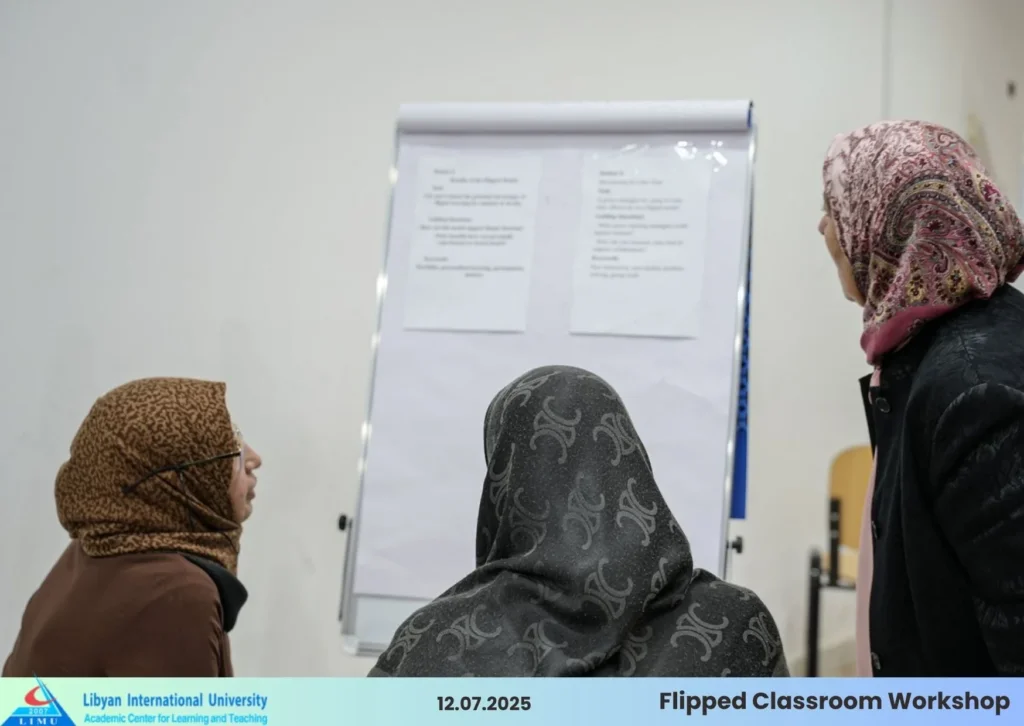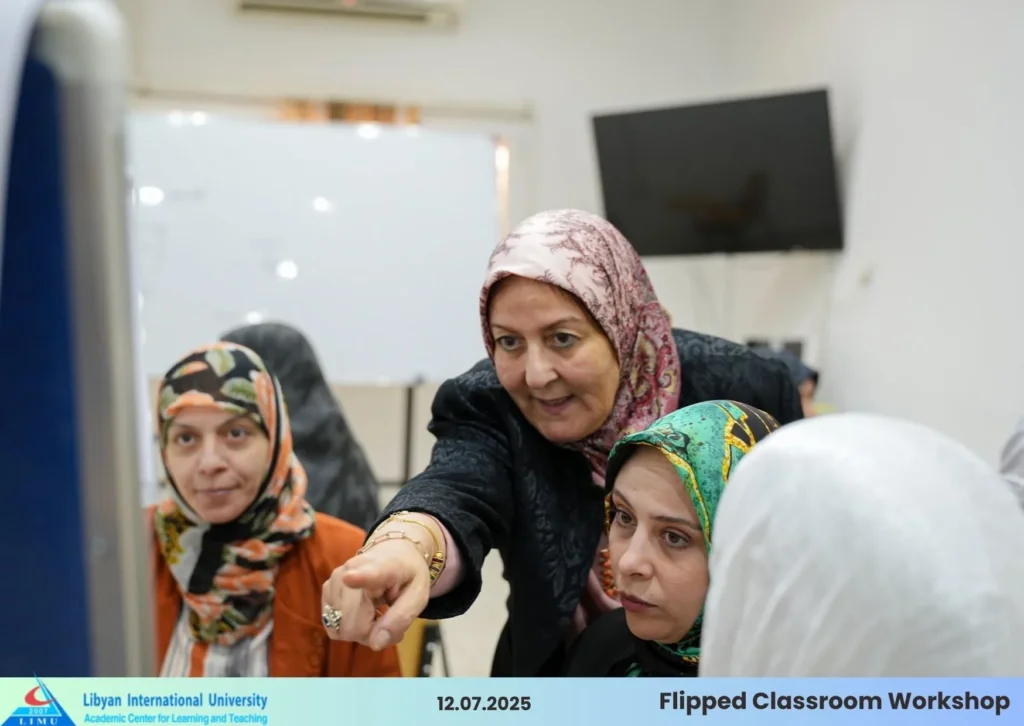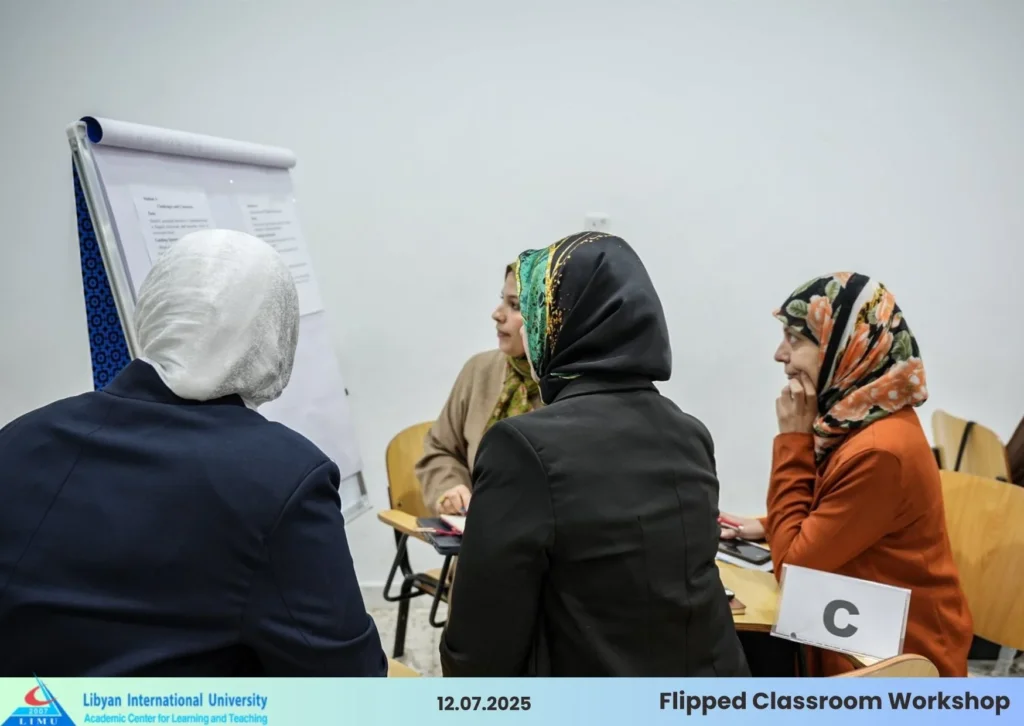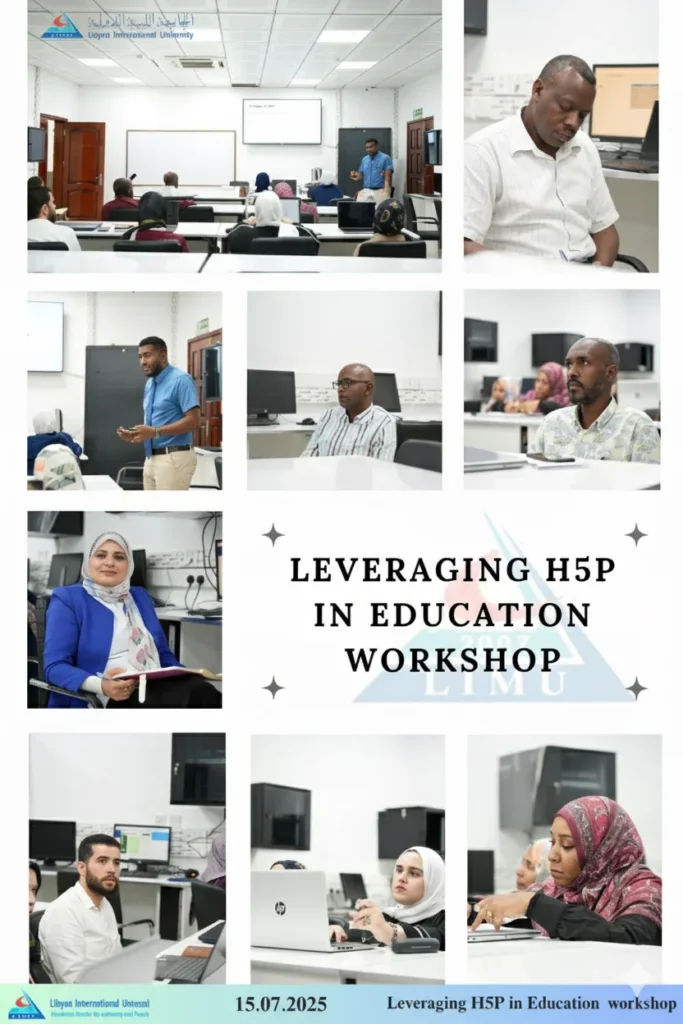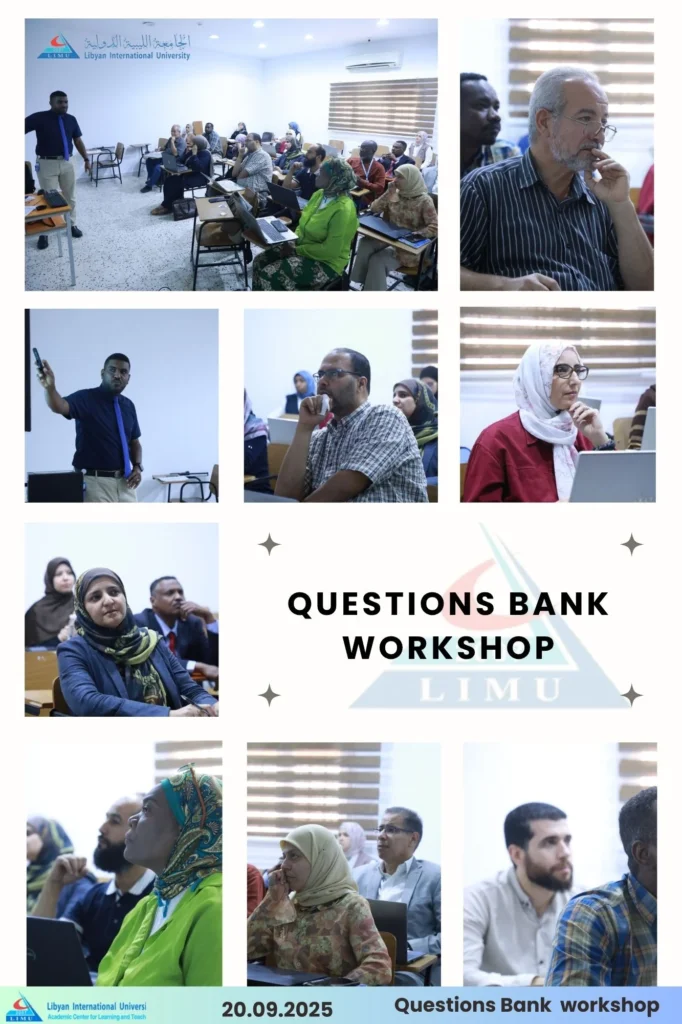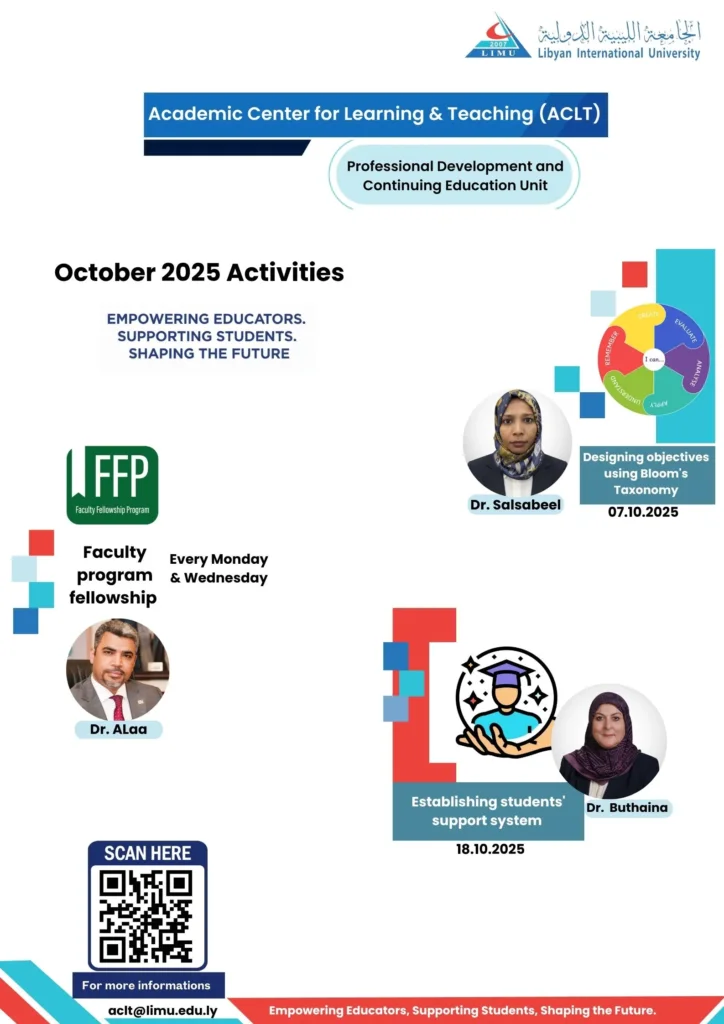The Academic Center for Learning and Teaching (ACLT) at the Libyan International University (LIMU) organized a workshop on “Flipped Classroom: Active Learning for Student Engagement” for faculty members of the Libyan International University on July 12, 2025.
The workshop aimed to introduce faculty members to the principles and practices of the flipped classroom model, emphasizing its role in promoting active, learner-centered education. The interactive session covered the following objectives:
– Concept and Rationale: Participants explored the philosophy of the flipped classroom, focusing on shifting knowledge acquisition outside the classroom and dedicating in-class time to higher-order learning activities.
– Instructional Design: The workshop presented strategies for developing pre-class learning materials such as recorded lectures, reading assignments, and multimedia resources that prepare students for classroom engagement.
– Active Learning Techniques: Faculty members engaged in practical exercises demonstrating methods such as problem-solving tasks, case-based discussions, role-playing, and peer instruction to enhance classroom interaction.
– Technology Integration: Attendees were introduced to digital tools and platforms that support flipped learning, including learning management systems (LMS), video recording software, and collaborative applications.
– Assessment and Feedback: The session highlighted approaches to formative and summative assessment within the flipped model, emphasizing timely feedback, reflective learning, and alignment with learning outcomes.
– Challenges and Solutions: Faculty members discussed common barriers to implementing flipped classrooms, such as student readiness, time constraints, and resource availability, while exploring evidence-based solutions.
The workshop emphasized the transformative potential of the flipped classroom in fostering deeper understanding, critical thinking, and active participation. Faculty members gained insights and practical skills to redesign their teaching methods, creating dynamic learning environments that empower students to take responsibility for their own learning.
